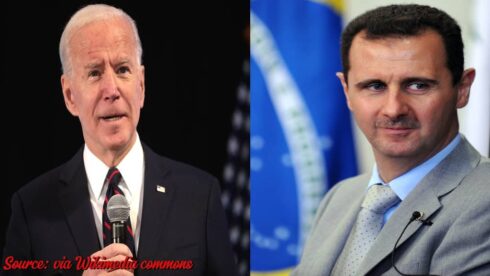President Joe Biden, in a recent press conference, characterized the downfall of Syrian President Bashar al-Assad as a “fundamental act of justice.” This statement marks a definitive stance from the White House, underscoring the administration’s commitment to holding authoritarian leaders accountable. President Joe Biden emphasized the importance of restoring democracy and upholding human rights in regions plagued by tyranny and conflict.
President Joe Biden’s comments come as Syria continues to grapple with political instability and humanitarian crises. By addressing the issue, the U.S. President, Joe Biden highlights Washington’s broader strategy of promoting global stability through diplomatic and strategic interventions. His words resonate as a call to action for the international community to collectively work toward a just and peaceful resolution in Syria.
Historical Context of Assad’s Regime
Bashar al-Assad rose to power in 2000 following the death of his father, Hafez al-Assad. Over the years, his regime has been marred by allegations of human rights abuses, including chemical weapon attacks and suppression of political dissent. The Syrian Civil War, which began in 2011, further exposed the Assad government’s controversial tactics, drawing widespread condemnation.
International efforts to address the crisis have seen varying levels of success. The regime’s resilience, bolstered by allies such as Russia and Iran, has complicated diplomatic resolutions. President Joe Biden’s remarks signal a renewed push by the U.S. to dismantle what he calls a regime of oppression and advocate for a democratic future in Syria.
U.S. Foreign Policy and Middle East Strategy
President Joe Biden’s declaration aligns with the U.S.’s long-standing foreign policy of promoting democracy and countering authoritarianism in the Middle East. The administration has reiterated its support for the Syrian opposition and humanitarian aid for displaced civilians. Washington continues to work closely with allies in the region to combat extremist threats and stabilize war-torn areas.
This approach also reflects President Joe Biden’s broader geopolitical strategy to reduce the influence of adversaries like Russia and Iran in the Middle East. By focusing on Syria, the U.S. aims to reassert its leadership role and foster an environment conducive to democratic governance and human rights.
The Role of the International Community
President Joe Biden called upon the international community to join efforts in supporting justice and rebuilding Syria. He urged global leaders to increase pressure on the Assad regime through sanctions, diplomatic isolation, and support for war crimes investigations.
Organizations like the United Nations and Amnesty International have long documented the atrocities committed under Assad’s rule. President Joe Biden’s statement could reinvigorate international collaboration, signaling a united front against impunity and the perpetuation of authoritarian governance.
Reactions and Criticisms
President Joe Biden’s comments have drawn mixed reactions from global leaders and political analysts. While some applaud his firm stance against Assad’s regime, others criticize the U.S. for its involvement in prolonged Middle Eastern conflicts. Skeptics argue that such rhetoric must be backed by tangible actions to avoid repeating past policy failures in the region.
Russian officials, key allies of Assad, dismissed President Joe Biden’s remarks as “interference in Syria’s internal affairs.” The Kremlin has consistently opposed Western-led efforts to oust Assad, framing them as destabilizing interventions. This divergence highlights the geopolitical complexity surrounding the Syrian crisis.
Path Forward for Syria
As President Joe Biden amplifies calls for justice, the path forward for Syria remains uncertain. The country faces immense challenges, including rebuilding its infrastructure, resettling millions of refugees, and addressing deep-seated political divisions. The international community must strike a delicate balance between supporting justice and ensuring sustainable peace.
The President Joe Biden administration has indicated plans to increase humanitarian aid and bolster support for Syrian opposition groups. However, long-term success will depend on multilateral efforts that prioritize the voices and needs of the Syrian people, ensuring a transition toward a stable and democratic society.














